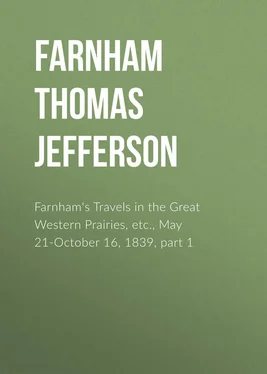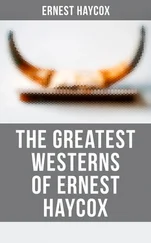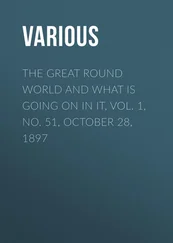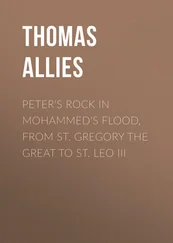Thomas Farnham - Farnham's Travels in the Great Western Prairies, etc., May 21-October 16, 1839, part 1
Здесь есть возможность читать онлайн «Thomas Farnham - Farnham's Travels in the Great Western Prairies, etc., May 21-October 16, 1839, part 1» — ознакомительный отрывок электронной книги совершенно бесплатно, а после прочтения отрывка купить полную версию. В некоторых случаях можно слушать аудио, скачать через торрент в формате fb2 и присутствует краткое содержание. Издательство: Иностранный паблик, Жанр: foreign_antique, foreign_prose, Путешествия и география, на английском языке. Описание произведения, (предисловие) а так же отзывы посетителей доступны на портале библиотеки ЛибКат.
- Название:Farnham's Travels in the Great Western Prairies, etc., May 21-October 16, 1839, part 1
- Автор:
- Издательство:Иностранный паблик
- Жанр:
- Год:неизвестен
- ISBN:нет данных
- Рейтинг книги:3 / 5. Голосов: 1
-
Избранное:Добавить в избранное
- Отзывы:
-
Ваша оценка:
- 60
- 1
- 2
- 3
- 4
- 5
Farnham's Travels in the Great Western Prairies, etc., May 21-October 16, 1839, part 1: краткое содержание, описание и аннотация
Предлагаем к чтению аннотацию, описание, краткое содержание или предисловие (зависит от того, что написал сам автор книги «Farnham's Travels in the Great Western Prairies, etc., May 21-October 16, 1839, part 1»). Если вы не нашли необходимую информацию о книге — напишите в комментариях, мы постараемся отыскать её.
Farnham's Travels in the Great Western Prairies, etc., May 21-October 16, 1839, part 1 — читать онлайн ознакомительный отрывок
Ниже представлен текст книги, разбитый по страницам. Система сохранения места последней прочитанной страницы, позволяет с удобством читать онлайн бесплатно книгу «Farnham's Travels in the Great Western Prairies, etc., May 21-October 16, 1839, part 1», без необходимости каждый раз заново искать на чём Вы остановились. Поставьте закладку, и сможете в любой момент перейти на страницу, на которой закончили чтение.
Интервал:
Закладка:
The prospect of being thus immolated upon the altar of Mormonism, did not produce so much humility and trembling among these hardy frontiersmen as the prophet Joe had benevolently desired. On the contrary, the pious intimation that their throats would be cut to glorify God, was resisted by some ruthless and sinful act of self-defence; and all the denunciations of the holy brotherhood were impiously scorned as idle words. However, in spite of the irreligious wrath of these deluded, benighted Missourians, the Saints cut timber wherever they listed on the domains which were claimed by the people of the world. And if the "Lord's hogs or horses" wanted corn, the farms in the hands of the wicked were resorted to at a convenient hour of the night for a supply. In all these cases, the "Saints" manifested a kind regard to the happiness even of the enemies of their faith. For whenever they took corn from fields in possession of the world's people, they not only avoided exciting unholy wrath by allowing themselves to be seen in the act, but, in order that peace might reign in the bosoms of the wicked, even, the longest possible time, they stripped that portion of the harvest field which would be last seen by the ungodly owner.
The "Church militant," however, being inefficient and weak, the Prophet Joe declared that it was their duty to use whatever means the Lord might furnish to strengthen themselves. And as one powerful means would be the keeping of its doings as much as possible from the world, it was he said, the will of Heaven, revealed to him in proper form, that in no case, when called before the ungodly tribunals of this perverse and blind generation, should they reveal, for any cause, any matter or thing which might, in its consequences, bring upon the brotherhood the infliction of those pretended rules of Justice, by the world called Laws. Under the protection of this prophecy, a band of the brethren was organized, called the "Tribe of Dan," whose duty it was to take and bring to the "Lord's store," in the far West, any of the Lord's personal estate which they might find in the possession of the world, and which might be useful to the "Saints," in advancing their kingdom. Great good is said to have been done by this Tribe of Dan; for the Lord's store was soon filled, and the Saints praised the name of Joe. The Prophet's face shone with the light of an all-subduing delight at the increase of "Zion," and the efficiency of his administration.
The Missourians, however, were destitute of the Latter-Day Faith, and of just views of the rights devised to those, who, in the Lord's name, should destroy his adversaries, and restore the earth to the dominion of millennial righteousness. Poor mortals and deluded sinners! They believed that the vain and worldly enactments of legislative bodies were to prevail against the inspirations of the Latter-Day Prophet Joe; and in their unsanctified zeal, declared the Saints to be thieves, and unjust, and murderous; and the Tribe of Dan to be a pest to the constitutional and acknowledged inherent and natural right to acquire, possess, and enjoy property. From this honest difference of opinion arose the "Mormon War," whose great events are recorded in the narrative of the "Latter-Day Saints?" Some events, there were, however, not worthy to find record there, which may be related here.
The Governor of the Missouri 26 26 The governor of Missouri (1836-40) was Lilburn W. Boggs, for whom see our volume xx, p. 98, note 65. – Ed.
ordered out the State troops to fight and subdue the Mormons, and take from them the property which the "Tribe of Dan" had deposited in the "Lord's brick store" in the "citadel of Zion," called "Far West." It was in 1838 they appeared before the camp of the "Saints" and commanded them to surrender. It was done in the manner hereafter described. But before this event transpired, I am informed that the Prophet Joe opened his mouth in the name of the Lord, and said it had been revealed to him that the scenes of Jericho were to be re-enacted in Far West; that the angelic host would appear on the day of battle, and by their power give victory to the "Saints."
To this end he ordered a breastwork of inch pine boards to be raised around the camp, to show by this feeble protection against the artillery of their foes, that their strength was in the "breast-plate of righteousness," and that they were the soldiers of the militant portion of the Kingdom of Heaven. There were moments of awful suspense in the camp of the "Saints." The Missouri bayonets bristled brightly near their ranks, and an occasional bullet carelessly penetrated the pine-board rampart, regardless of the inhibition of the Prophet. The Heavens were gazed upon for the shining host, and listening ears turned to catch the rushing of wings through the upper air. The demand of surrender was again and again repeated; but Faith had seized on Hope, and Delay was the offspring.
At this juncture of affairs, a sturdy old Missourian approached the brick store, pickaxe in hand, apparently determined to do violence to the sacred depository. One of the sisters in robes of white accosted him, and with proper solemnity made known that the "Lord of the Faithful" had revealed to Joe, the Prophet, that every hand raised against that "holy structure" would instantly be withered. The frontiersman hesitated, but the hardihood characteristic of these men of the rifle returning, he replied, "Well, old gal, I'll go it on one hand any how." The awful blow was struck; the hand did not wither! "I doubles up now," said the daring man, and with both hands inflicted a heavy blow upon a corner brick. It tumbled to the ground, and the building quickly fell under the weight of a thousand vigorous arms. The confidence of the Saints in their Prophet waned, and a surrender followed, Some of the principal men were put in custody, but the main body were permitted to leave the State without farther molestation. We afterwards met many of them with their herds, &c., on the road from Far West to Quincy, Illinois. It was strongly intimated by the planters in that section of country, that these emigrating "saints" found large quantities of the "Lord's corn" on their way, which they appropriated as need suggested to their own and their animals' wants.
The origin of the "Book of Mormon" 27 27 Consult the references in our volume xxiv, pp. 119, 120, notes 99, 100. – Ed.
was for some time a mystery. But recent developments prove it to have been written in 1812 by the Rev. Solomon Spaulding, of New Salem, in the state, Ohio. It was composed by that gentleman as a historical romance of the long extinct race who built the mounds and forts which are scattered over the valley States. Mr. Spaulding read the work while composing it to some of his friends, who, on the appearance of the book in print, were so thoroughly convinced of its identity with the romance of their deceased pastor, that search was made, and the original manuscript found among his papers. But there was yet a marvel how the work could have got into the hands of Joe Smith. On further investigation, however, it appeared that the reverend author had entertained thoughts of publishing it; and, in pursuance of his intention, had permitted it to lie a long time in the printing office in which Sidney Rigdon, who has figured so prominently in the history of the Mormons, was at the time employed. 28 28 See a brief sketch of Rigdon in Flagg's Far West , our volume xxvi, p. 358, note 209. – Ed.
Rigdon, doubtless, copied poor Spaulding's novel, and with it, and the aid of Joe Smith, has succeeded in building up a system of superstition, which, in vileness and falsehood, is scarcely equalled by that of Mahomet.
Solomon Spaulding was a graduate of Dartmouth College.
On the 30th of May, we found ourselves prepared to move for the Indian Territory. 29 29 For the use of this term Indian Territory – which did not at that time correspond with our present Indian Territory – see Wyeth's Oregon in our volume xxi, p. 50, note 31. – Ed.
Our pack-saddles being girded upon the animals, our sacks of provisions, &c. snugly lashed upon them, and protected from the rain that had begun to fall, and ourselves well mounted and armed, we took the road that leads off south-west from Independence in the direction of Santa Fé. 30 30 The Santa Fé route was taken in preference to the Oregon trail on the advice of Andrew Sublette and Philip Thompson, who had just returned from the mountains. See Shortess's "Sketch," cited in note 20, above. – Ed.
But the rains which had accompanied us daily since we left Peoria, seemed determined to escort us still, our ill-natured scowls to the contrary notwithstanding: for we had travelled only three miles when such torrents fell, that we found it necessary to take shelter in a neighbouring schoolhouse for the night. It was dismal enough; but a blazing fire within, and a merry song from a jovial member of our company imparted as much consolation as our circumstances seemed to demand, till we responded to the howling storm the sonorous evidence of sweet and quiet slumber.
Интервал:
Закладка:
Похожие книги на «Farnham's Travels in the Great Western Prairies, etc., May 21-October 16, 1839, part 1»
Представляем Вашему вниманию похожие книги на «Farnham's Travels in the Great Western Prairies, etc., May 21-October 16, 1839, part 1» списком для выбора. Мы отобрали схожую по названию и смыслу литературу в надежде предоставить читателям больше вариантов отыскать новые, интересные, ещё непрочитанные произведения.
Обсуждение, отзывы о книге «Farnham's Travels in the Great Western Prairies, etc., May 21-October 16, 1839, part 1» и просто собственные мнения читателей. Оставьте ваши комментарии, напишите, что Вы думаете о произведении, его смысле или главных героях. Укажите что конкретно понравилось, а что нет, и почему Вы так считаете.












